You can spend months researching towing capacity charts, watching review videos, and getting convinced that an SUV like the Toyota Sequoia TRD Pro will be the perfect do-it-all vehicle. But sometimes reality feels more different than the numbers suggest. This morning, I was scrolling through the “2022-2026 Toyota Sequoia” group on Facebook and came across a post by Leslie Anne, who learned that firsthand. Leslie bought the Sequoia TRD Pro thinking it would strike the ideal balance between family comfort and towing muscle. But once she hitched up her 31-foot, 6,000-pound camper, the experience quickly turned nerve-wracking. Even with weight distribution bars, the trailer swayed constantly, leaving her questioning whether she made the right choice, or if a proper truck would’ve been the smarter move.
Leslie wrote, “I have the TRD Pro… I was sold on the towing capacity but my 31’ 6,000 lb camper sways awfully even with the weight distribution bars. Feeling pretty bummed I didn’t go with a truck. Anyone else towing with their Sequoia?”
The Numbers Don’t Tell the Whole Story
Tow ratings can be misleading when viewed in isolation. Leslie’s camper weighs well within the Sequoia TRD Pro’s limits, but length, wind drag, and road stability introduce new challenges. Many buyers assume that if their trailer is under the max tow rating, they’re in the clear. But real-world dynamics like trailer sway don’t always cooperate.
The issue isn’t just about weight, but about physics. A longer camper like Leslie’s creates a larger surface area for crosswinds, and an SUV’s shorter wheelbase compared to a full-size truck can lead to instability. Even the best weight-distribution setup can’t fully eliminate that sway if the vehicle geometry just isn’t ideal for long-trailer towing.
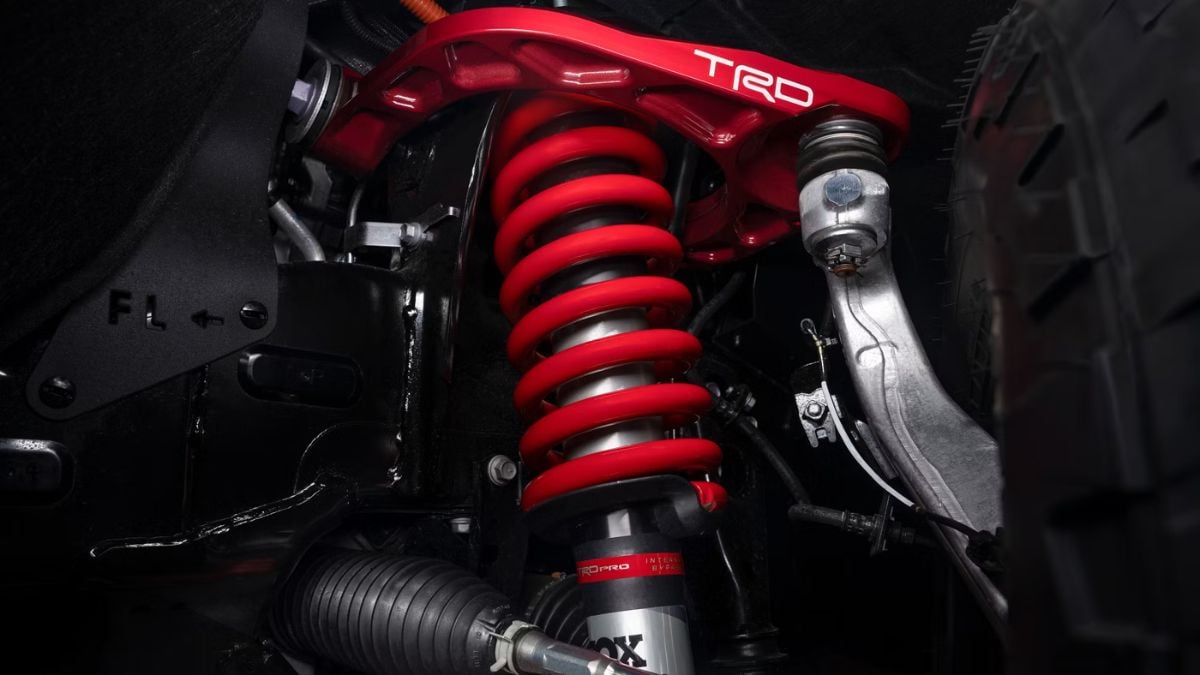
What Other Owners Are Saying
Leslie’s concerns sparked a helpful and honest conversation in the comments. Some owners backed up her experience with their own struggles, while others pointed out techniques or tips that made towing more manageable.
Ryan Elsey offered a seasoned perspective: “I towed a 31’ last summer with my Raptor. At a certain length, the wind just catches the trailer like crazy no matter what you’re towing with. Short of a 3/4 or 1 ton, you’re gonna notice it.”
Ryan’s comment really sums up the heart of the issue. No matter how capable the SUV might seem, certain trailers test the limits of physics. Rigs beyond a certain length simply benefit from the added mass and stability of a heavy-duty truck. Even a performance off-roader like the Ford Raptor struggles with this issue, so it’s not a knock on the Sequoia specifically, as it’s a broader conversation about vehicle type.
Ashley Phillips chimed in with practical advice and a more optimistic tone: “We tow our 30ft Coleman and we have had to make some adjustments, but I think we have got it almost figured out. Definitely have to make sure to air up the tires well on both the trailer and vehicle. Empty out all tanks and fully place the weight at the front of the camper. Regardless of good or windy conditions, it’s best to keep speeds at 65 tops.”
Her input reminds us that setup can make or break the towing experience. From tire pressure to load distribution, the little things add up. It doesn’t erase the core concern about the Sequoia’s short wheelbase, but it shows that knowledge and adjustments can sometimes turn a rough experience into a manageable one.
On the other end of the discussion, Charles Dodd pushed back on the idea that SUVs are inherently worse for towing: “Towing with the Sequoia is no different than towing with a truck when it comes to sway. I tow a lot and there is no difference. It's all about tongue weight and distribution. If you distribute the weight and get the tongue height proper, you'll be ok.”
Charles’s view reflects the group that believes the driver’s setup decisions matter more than the platform. While that might be true for shorter or lighter trailers, Leslie’s story still highlights the difficulty of towing large campers even when all the boxes are checked.
A Deeper Look at the Sequoia’s Towing Identity
The third-generation Toyota Sequoia, redesigned for 2023, is built on the same TNGA-F platform as the Tundra, which naturally brings with it some serious improvements. But while it may share the bones of a truck, its ride tuning, interior layout, and rear overhang are still tailored for SUV versatility over brute towing strength.
Even in its most rugged trim, the TRD Pro, the Sequoia aims to balance off-road capability with daily usability. That means a suspension geared more for articulation than load stability, and a wheelbase that’s shorter than a proper truck. While the 2025 Toyota Sequoia Capstone offers luxurious towing ability, it still might not be ideal for towing something as long and tall as Leslie’s camper.
In contrast, owners who’ve stepped into Toyota’s truck lineup tend to report greater towing confidence. In another story, I wrote about an owner who after owning a Sequoia and later moving to a 2025 Toyota Tundra for towing duties, the change was more than just noticeable, as it was transformative.
So from my perspective, this story perfectly illustrates how real-world use cases challenge marketing numbers. It’s easy to get sold on big towing figures. But when you’re white-knuckling the wheel with a 31-foot camper swaying behind you, all that confidence is now being put to the test.
I think the Sequoia is a brilliant vehicle for the right buyer. It’s capable, refined, and far more efficient than its predecessors. But it also walks a fine line between being a family SUV and a towing machine. When you start towing at the limits, you’re no longer in a comfortable middle ground, because you’re starting to step into a space where trucks still dominate for a reason.
That’s not to say you need a 2500HD to tow a camper, but you do need to understand how wheelbase, hitch height, suspension tuning, and trailer aerodynamics come together. And sometimes, a traditional half-ton truck like the Tundra, especially when tuned specifically for towing, just makes more sense. Even those switching from to a Toyota Tundra TRD Pro helped clarify what good towing should feel like.
Key Takeaways for Towing with a Sequoia
- Tow ratings don’t tell the full story. A 6,000 lb trailer may seem safe on paper, but length and wind resistance drastically affect stability.
- Setup matters, but it has its limits. Tire pressure, weight distribution, and tongue height are important, but can’t always overcome a short wheelbase or soft suspension.
- Community insights are valuable. Hearing from people shows how experiences can vary widely, and it proves why doing your homework is key.
- Think beyond the specs. Before committing to an SUV for towing, try to test your exact trailer combo or speak with someone who tows something similar. Even articles like this one highlighting upcoming Tundra changes can shed light on evolving platforms.
What About You?
Have you ever towed a camper with an SUV like the Sequoia? Did it feel secure or were you left wanting the stability of a pickup truck?
And if you had to purchase your vehicle again, would you stick with your SUV or go straight to a truck instead?
Share your experience in the comments below, as we’d love to hear what worked (or didn’t) for you.
Aram Krajekian is a young automotive journalist bringing a fresh perspective to his coverage of the evolving automotive landscape. Follow Aram on X and LinkedIn for daily news coverage about cars.
Images Sources: Toyota Gallery and the “2022-2026 Toyota Sequoia” public Facebook group.
Set as google preferred source


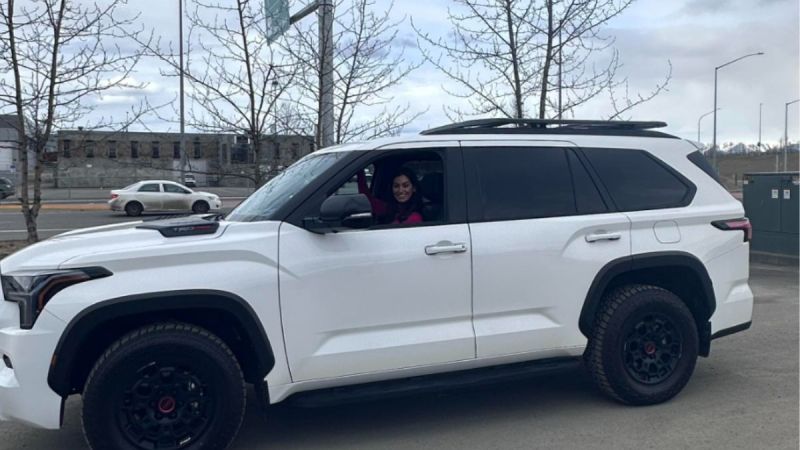





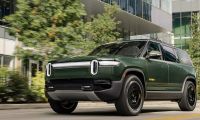
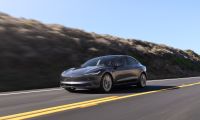

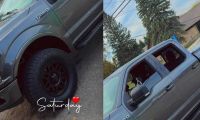
Comments
I know what you mean. I…
Permalink
I know what you mean. I dumped mine and got a Grand Cherokee diesel which pulls my 7,000 lb trailer with ease.👍
The big mistake was buying a…
Permalink
The big mistake was buying a Travel Trailer that long to begin with. Buy a nice tent and rent hotels and cabins when available. The cost/benefit never pays out for travel trailers. Maybe a small airstream with enough room for sleeping would be good, but with the money you spend on suv/truck and trailer, not to mention fuel, waiting times, and costs for campgrounds, you can buy a nice time-share and a hell of a nice tent. If you use the trailer for work and/or to live in for a while when you divorce over the issues like I did, then maybe it’s a good deal.
No shit
Permalink
No shit
I can tow a 30ft RV trailer…
Permalink
I can tow a 30ft RV trailer with my 1999 Ford Ranger no problem. It's a 4.0L V6, 4X4, rebuilt the Lifted suspension, beefier brakes, electric brakes and tranny cooler to match the load. It will haul a Pallet of Floor tile too. no problem. Also have a 14 ft RV trailer with flip out beds. I can go camping in way off road. Bought it to tow/launch a Bass Boat, but I gave my boat to Number 3 grandson.
'Towing Capacity' is only 1…
Permalink
'Towing Capacity' is only 1 part of the equation. You also have to consider your vehicles 'Payload' and 'Hitch Weight' ratings, as well as the actual hitch weight of the loaded trailer.
With towing, it's not just a one and done number game.
And personally, I believe the weight distribution system was designed by an engineer who bought a trailer too heavy for his vehicle and said... hang on a minute, I can fix this!
Set weight distribution…
Permalink
Set weight distribution hitch properly. Better yet invest in a weigh safe or a pro pride P3 hitch. They will be great for that set-up. Don't just buy the cheapest hitch lol they are not all the same.
I hope in the future we do…
Permalink
I hope in the future we do our homework. Articles like this are misleading and sound like this vehicle is incapable of meeting the mark. The Tundra and Sequoia are the same platform. The GVWR of the Sequoia is reduced because the vehicle is heavier than the Tundra. Diesel trucks often have a lesser GVWR than the gas counter parts because the gas motor weights less. People should take there new trailer to a weight station had have the axles weighed. I think most will conclude that the manufacturers of these trailers are underestimating their weight. Now add water to that at 8.33lbs per gallon, that all ads up.
I've always shown horses…
Permalink
I've always shown horses across the country and I've learned what works and what feels like your on the edge of losing control. My current work horse for towing is a Chevy Silverado 3500 Dually. Everything works in harmony to keep you on the straight and narrow safely even in severe wind events, strong enough to tear the A/C unit off the top of the trailer. I did drive a friend's Ford Explorer to haul, using her smaller 2-horse trailer and that was scary to drive, not only aerodynamically but that vehicle didn't have the brakes to handle the extra weight. Everything was geared towards comfort and it was all too 'squishy' to feel secure. I advise anyone who hauls anything not to take a particular vehicles tow rating as true, because in the real world it's not always correct
The one thing I will say…
Permalink
In reply to I've always shown horses… by Monique Borruso (not verified)
The one thing I will say about Chevy is that the brakes are always sharp and powerful. Other than that, not a fan. I like the reliability of my Toyotas.
I'm not saying Toyota builds great powerful engines. This comment is about brakes. I do think Toyota should work on a 6.7 diesel engine, but I digress.
I have no experience with…
Permalink
I have no experience with the new Sequoia but I can tell u the 2nd gen ( which I own)does a very good Job. I own a 2021kodiak ultra light approximately 5800 pounds. I have found it very capable at towing . Of course it's no 2500 pickup but it gets the job done. Airbags are a must on the limited and sr5 , I believe the platinum has them factory. Of course a good wd hitch, is a must as well. And it must be dialed in correctly to your vehicle. Packing the camper with weight put in the right place also helps. I always inflate my rear tires about 3-4 pound extra to compensate for the tounge weight. Ivw been towing all my life and I tell everyone keep it below 65 and always always always use your tow/ haul switch. One more thing when buying a camper always go for double axels this makes a world of difference in the handling of your camper , 4 wheels on the ground are always better than two!!!! And invest in a good brake control such as a prodigy, you can never be too careful so use all the tools ya can!!!
I've never had a properly…
Permalink
I've never had a properly loaded trailer sway. Be it a 61" Scag behind a Corolla or a thirty-something foot trailer with a Trackhoe and Bobcat behind a 99 f-350 or a big ass boat behind a 67 Valiant. All were 3x the tow ratings. I bet a million bucks the idiots have everything stored in the back of the camper.
When ever I read TRD on the…
Permalink
When ever I read TRD on the truck I think turd😁
When ever I read TRD on the…
Permalink
When ever I read TRD on the truck I think turd😁
It’s a tundra, it has a…
Permalink
It’s a tundra, it has a longer wheel base than a ram and less than an inch diff than F150. Buying a diff truck wouldn’t change the fact that your sequoia is already a truck. It comes down to the size of that camper, without a 2500HD or f250 ect your not getting any help switching to another truck. 65 mph is probably to fast for that anyways so unless you have a 2500 get a 22-25 ft camper.
It's not a truck, but your…
Permalink
In reply to It’s a tundra, it has a… by Chaunceman (not verified)
It's not a truck, but your comment is on point. I've heard people refer to their SUVs as trucks, cause people like shorters words. Truck is 1 syllable and SUV is 3, more if you say Sport Utility Vehicle.
I towed with a 2021 Nissan…
Permalink
I towed with a 2021 Nissan Armada. I have a 2022 Coachman Apex NANO at 25f 4,800lbs. The armada had plenty of power to tow but wheelbase made things stressful. No way I'd do 65mph most of the time as it just didn't feel safe in windy or with semis. Fast forward to now and I have a 2024 Chevrolet 2500HD Diesel. I don't even notice I am towing now and I will never go back. I would never recommend towing with an SUV and if you do go at most half the max weight and never longer than vehicle towing.
But you're comparing 2…
Permalink
In reply to I towed with a 2021 Nissan… by jimdoesit (not verified)
But you're comparing 2 totally different vehicles. They have different engines.
Compare things like Tundra vs Sequoia and get back to us!
I have a '24 TRD Pro Tundra…
Permalink
I have a '24 TRD Pro Tundra that pulls our 20' 7500 lb. toy hauler. I couldn't tow it without airbags. I went with the Air Lift LoadLifter 5000 set-up. Attach the trailer, and then air up the bags until the frame of the truck is on the same plane as the frame of the trailer.
The inexpensive route is to inflate/deflate the bags using a bicycle pump. It only takes a few strokes of the pump to reach the desired PSI since the volume of the airbags is relatively low. I went with a version that has a built-in compressor and a remote control. I can stand to the side and use the remote to inflate the bags until everything is level. That's a more complicated installation and cranks up the price.
But I wouldn't/couldn't tow without the combination of the weight distributing hitch and airbags. When it's set up properly, I sometimes forget I have the trailer behind me.
This article is whacked. The…
Permalink
This article is whacked.
The issue is not truck vs SUV,
it's a question of engine size.
The problem is car companies are making smaller engines and expecting them to do the same work cause it has this turbo fad technology.
And Toyota is foolish to be using this new technology, instead keeping what is tried & true.
A truck can do the gooseneck
towing, which some feel is easier,
but the SUV can still pull.
SUVs have internal storage so
your cargo is protected from the
elements like rain. Many serious
contractors will tell you an SUV or
van is a better way to go.
Trucks have external storage,
which occasionally is a better idea.
external storage which occasionally
is more useful.
You don't pay for the convenience
of either though. You pay for the
material the car maker is giving you.
And the Sequoia has more material
put into it.
There are more Tundras on the road
than Sequoias, but not cause they are
better/stronger vehicles. Look at any
car brand and the same grade SUV always costs more, so less people buy them.
Nor is the Sequoia meant to be a family vehicle, though it's good for that too as some people need the room and the engine capability.
My parents had a 91 Chev G20…
Permalink
My parents had a 91 Chev G20 conversion van that did a decent job of towing an even older 27 foot travel trailer. Then they invested in a 24 foot trailer that was much lighter. That poor van couldn't get to highway speed with that new trailer attached because it was taller than the old trailer (and the van). I felt so bad that the same day I found them a 97 F350 dually diesel about twenty minutes away. New it had like 200 horsepower and 300 lb/ft, and even as old as it is, it doesn't break a sweat with their new trailer. Purpose built rigs are often superior to better specced multipurpose vehicles.
I have a 34' travel trailer…
Permalink
I have a 34' travel trailer that weighs close to 10,000 lbs. I tow it with a Chevy 2500 HD Diesel.
Now something like that is required for the weight, but you really need the brakes and transmission upgrades that come along with it. The sway associated with the 34' is common, and I use an anti-sway bar on the hitch that helps significantly.
My regret is not going with the 3500 Dually. That much weight wants to constantly pull the truck and trailer straight, leaving a lot of wear on the single rear wheel configuration that can only be helped with adding more wheels/contact surfaces. I compromised because I didn't want to drive a dually to work and other life needs every day.
These are the things you learn with towing experience. There are some solutions for some issues, but there is always the right vehicle for the job. One size does not fit all in this case.
Most will buy the trailer based on the truck specs, but it really should possibly be the other way around... And single purpose is ideal, but rarely fits anyone's lifestyle or budget.
I read this with interest…
Permalink
I read this with interest since I am looking for a new tow vehicle. I purchased a 2018 Tacoma based on Tow specs of over 6000 lbs. 6 cylinder and enough HP. However when I tow my 3200 lb pontoon boat I really know it is back there. Even after rasiing the tow hitch to level the trailer. I do not feel sway or being unsafe. After further investigation the thing I did not take into account was Torque. Lessons learned
Trouble was in the name, TRD…
Permalink
Trouble was in the name, TRD, turd! Just a joke.
Weight distribution hitches…
Permalink
Weight distribution hitches actually make sway worse, what you need is anti sway bars and not all systems are the same. If you went to Harbor freight and bought a cheap one your experience is going to be completely different if you buy a weigh safe true tow setup. Then comes the biggest thing people completely ignore. Properly setting up your brake controller. You need to dial it in by driving while towing at a low speed and applying the brakes, you need to keep upping the gain until the trailer wheels lock up, this is usually done at 10mph if I remember right. Sway doesn't happen when you're accelerating or pulling uphill, just reading this article it's a 90% likelihood that the truck and trailer are not set up correctly. And that not even getting into tire pressure, and what your right actually weighs on a cat scale, just because it says 6000lbs doesn't mean you don't have thousands of pounds more in it and then is the tongue weight correct for it's actual weight? I honestly can't believe someone wrote an entire article complaining without discussing the actual setup and verification of the setup. Towing is not just hooking up a trailer and drive.
Capacity is only part of the…
Permalink
Capacity is only part of the equation. Trailer length and wheelbase are the other half. I had a 2008 sequoia which was rated for over 9000 lbs, but it has a short wheel base and even with sway control a 27 ft long trailer was pushing the limits. It's an expensive fix (although cheaper than a new truck) but look at a propride hitch. They are expensive and have a learning curve for hooking and unhooking but they eliminate sway. I can drive 70-75 with 0 sway.
Pagination